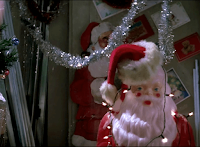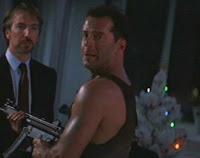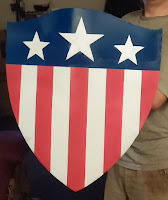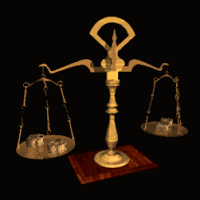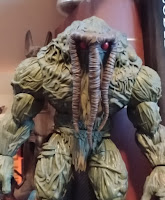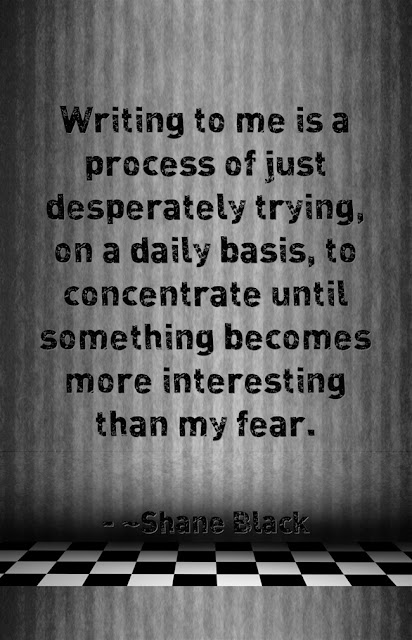Sorry I missed last week. Was up against a deadline (which I ended up sort of hockey-stopping past anyway). Plus, I feel like… I mean, is it just me, or in a way does it feel like we’re all relearning the internet right now? One of the biggest social media site in the world’s collapsing and people are trying to figure out what to do now. Run to a new social media site? Focus on the personal site? Abandon the internet and start training carrier pigeons on the roof of your apartment building?
That’s how it feels to me, anyway.
But it’s given me time to think about a few things…
I want to bounce an idea off you. Another way to think about plot and story. I’ve talked about these things once or thrice before. To go back to my oft-referenced Shane Black-ism, plot is what happens outside my characters, story is what happens inside my characters.
Today, I’d like to frame this in a different way, though. This idea crossed my mind, and the more I think about it, the more right it sounds and feels. To me, anyway.
Allow me to explain. And we’ll do it the best way possible. With a little story.
Let’s say I decide to lose thirty pounds. As of tomorrow, I exercise more, eat better, maybe cut back on the booze a bit. I do this for five or six months and wow—thirty pounds, gone.
So what’s happened here, from a storytelling point of view?

Well, simply put, I set out to do something and… I did it. It’s technically a plot, but not much of a plot. Not much story either. With no real conflicts or hangups, there isn’t a lot of room for self-discovery. So no real character arc.
Plot is conflict. It’s forcing my characters out of their comfort zones, into these fish-out-of-water sort of situations. And these are the situations where story happens.
So what’s story?
Well, if story’s what goes on inside my character, that would mean a character arc is a change in my character. An alteration of their views. Cowards become brave. The miserly become generous. The self-centered become sympathetic to others. Or vice versa—nobody said character arcs have to be positive. Lots of heroes have become villains, lots of good folks have been pushed to do horrible things.
Put another way, story is why I decided to lose 30 pounds. Did I do it for health reasons? For image reasons?
It’s very easy to have plot without story. Hollywood’s shown us that again and again. Hell, life shows us that all the time. I bet all of us here personally know one or two people who simply will not change their views—they won’t grow or advance in any way—no matter what they see, what they experience, what they do.
I’ve also talked once or thrice about “character-based” books and films, the ones that scoff at the idea of plot in favor of beautiful tales where… well, nothing happens. People sit around and have long talks and then… don’t change. Or they go through some very artificial, forced “growth.”
Thing is, nobody decides to change their views on their own. None of us ever wake up one morning and think “hey, maybe I should completely reverse my views on student loan forgiveness.” Nobody randomly decides to become a serial killer in the shower. We’re influenced by things outside of us. Around us. The people and events we’re exposed to, the things we endure, are what make us see the world in a different light. The external events motivate the internal changes.
Going back to my initial example. So I lost 30 pounds. Why? And why now? Obviously I’d been okay with my physical condition until now, so what made me suddenly decide to drastically cut my weight? Maybe someone died and made me realize I’ve got a lot of unhealthy habits that need to change? Perhaps I finally get to meet that online crush and worried what are they going to think of the real me? Maybe someone died and I realized I needed to become a rooftop-dwelling vigilante who haunts the night. What was it that got me thinking about losing weight?
I think plot tends to be active, but story tends to be a bit more reactive. We actively participate in the plot, but story kinda just… happens to us. We don’t have as much control over it. The reason so many of those artsy tales have poor stories is specifically because they don’t have a plot. There’s nothing new or different happening to encourage that internal change.
Y’see, Timmy, plot is the effect my characters have on the events, but story is the effect the events have on my characters. They push each other along. Like when I walk—pushing off the right foot lets the left foot move forward, pushing off the left foot lets the right foot move forward, and so on. if I try to move with just one foot it can get a little… erratic. And there’s a decent chance I’ll just faceplant.
Anyway, that’s what I’d like you to think about as you poke at your own manuscript. If I’m going to skimp on plot, what’s going to cause those inner changes? Do I have a real story, or is it just a forced, false change of view? And if all I’ve got is plot… why is anyone doing anything? What kind of arc do they have?
Next time…
Look, I’ll be honest. I feel like I’ve been rambling a bit and there hasn’t been a ton of feedback since pulling the ranty blog over here. Is everyone just happy with the rambling? Is no one reading this? Is it more of that online ennui I was talking about up top? Let me know something. Anything. A topic you might like or even one you’re sick of hearing about all the time. And if nobody says anything… maybe I’ll just talk about my trip to Egypt.
Until then, go write.



